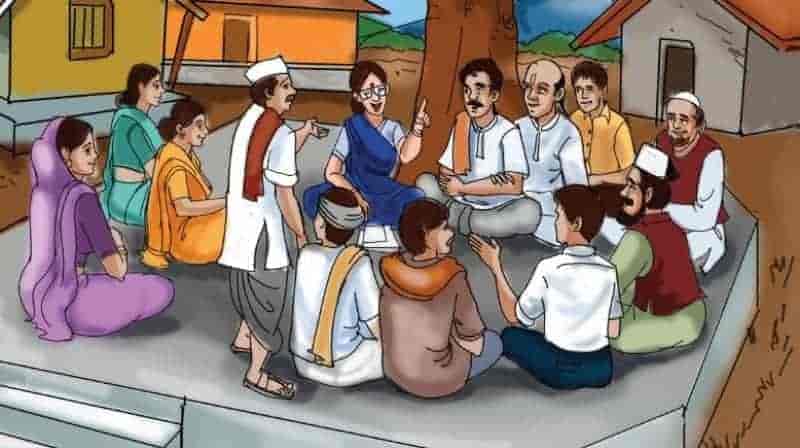Manzoor Naik
The quest for women’s emancipation in the Union Territory of Jammu and Kashmir has been marked by a remarkable transformation, largely attributed to the introduction of political reservations in local self-government / Urban Local Bodies. This progressive step has provided women with a significant platform to engage in decision-making processes, breaking down traditional barriers. However, within this landscape, the emergence of the “Sarpanch-Pati” culture presents both challenges and opportunities. This article delves into the narrative of women’s emancipation in Jammu and Kashmir, focusing on the impact of political reservations and the nuances of the Sarpanch-Pati phenomenon.
The 73rd and 74th Amendment Acts in the constitution of India have opened avenues for women’s participation in local governance, designating one-third of seats for women in panchayats and municipal bodies. In Jammu and Kashmir, this has catalyzed a shift in gender dynamics, offering women a platform to actively engage in decision-making at the grassroots level. As a historically diverse region, this transformation holds the potential to address deeply ingrained gender disparities.
The integration of women in leadership roles has contributed to a shift in societal perceptions and expectations. Women sarpanches in Jammu and Kashmir have taken charge of diverse developmental initiatives, leading to improvements in healthcare, education, and infrastructure. Their active involvement has not only strengthened the local governance framework but has also redefined the narrative of women’s role in public life, acting as an inspiration for future generations.
Amidst these advancements, the Sarpanch-Pati culture has emerged, mirroring a trend observed in various parts of India and particularly in Jammu and Kashmir. This phenomenon involves husbands exerting influence behind the scenes, sometimes overshadowing the roles of their wives. While not a universal phenomenon, the Sarpanch-Pati dynamic underscores the complexity of dismantling traditional patriarchal norms deeply ingrained in society.
The Sarpanch-Pati culture poses challenges to the full emancipation of women in local self-government. However, the state of Jammu and Kashmir has been proactive in addressing these challenges. Capacity-building programs, awareness campaigns, and sensitization workshops have been conducted to empower women sarpanches and promote their independent decision-making. The state’s unique cultural fabric adds another layer to these efforts, necessitating context-sensitive approaches.
Government officials who hold the reins of authority play a pivotal role in shaping the progress of our communities. However, the persistence of inefficiencies can hinder the removal of the “Sarpanch-Pati” culture, where husbands of female village leaders wield power behind the scenes. To truly dismantle this system, officials must take decisive steps to ensure equitable representation, transparency, and accountability. Empowering women leaders with autonomy and resources can help break the cycle of male dominance, fostering an environment where decisions are made based on merit rather than patriarchal norms. By addressing these inefficiencies head-on, officials can pave the way for a more inclusive and just governance structure, driving positive change at the grassroots level.
The journey of women’s emancipation in Jammu and Kashmir through political reservations and the challenge of the Sarpanch-Pati culture represents a microcosm of broader societal transformations. The empowerment of women through local governance participation is a beacon of hope, demonstrating the transformative potential of policy interventions. While the Sarpanch-Pati culture is a reminder of the persistent influence of traditional norms, it also underscores the necessity of targeted efforts to foster a more inclusive and equitable society. In essence, Jammu and Kashmir’s experience encapsulates the multifaceted nature of women’s emancipation. The successes achieved through political reservations are a testament to the power of inclusion, while the challenges posed by the Sarpanch-Pati culture call for ongoing efforts to create an environment where women’s voices can truly flourish, unburdened by the shadows of the past.


